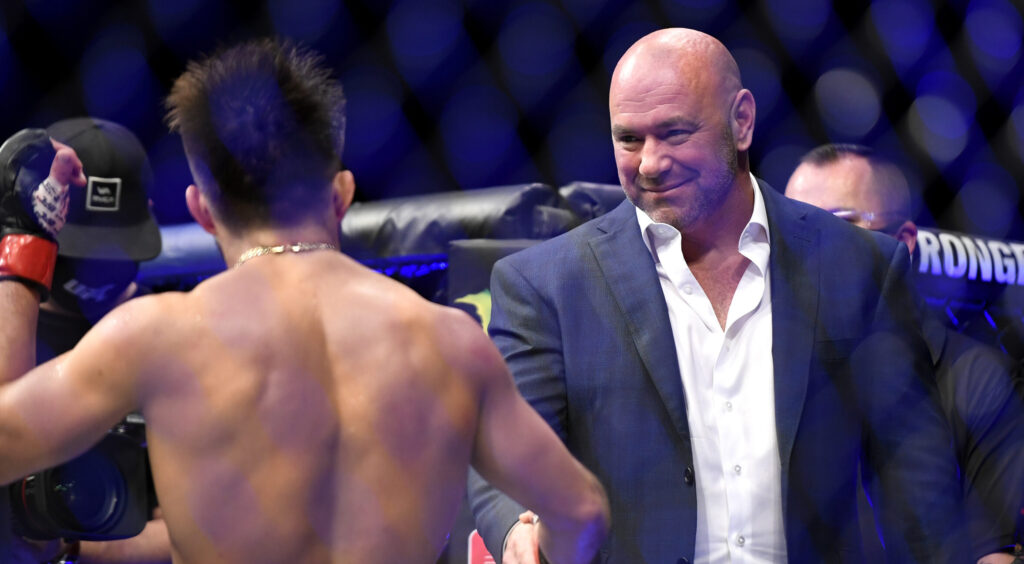
According to Dana White UFC fighters are not allowed to select the opponents they face. After determining potential matches and assessing the options, they forward the contracts to the fighters or their manager. A fighter might launch a campaign to take on a particular foe.
These efforts include callouts in octagon interviews, press conferences, social media teasing, and even physical altercations. The matchmakers, however, ultimately decide who gets to fight whom.
They arrange the matchup if the fighter’s suggested opponent makes sufficient sense in terms of rankings, entertainment value, or income generating. If a fighter has a good cause, they are also free to decline a fight that the corporation offers.
These can include accidents, further medical conditions, conflict with the law, problems with family members, etc. The combat is cancelled and the fighter is given time to heal if the stated reasons are accepted. When they return, they will reschedule to play against the same opponent or a different one.
Dana White And Kamaru Usman State Current Problems In Boxing
The fighter’s association will not be pleased if the fighters decline contests for unimportant reasons, like the opponent not fitting them into UFC. UFC fighters are expected to defend their belt against the opponent chosen by the company. Once a fighter makes his way to the top 10 fighters in UFC, he will for sure be facing the top killers.
Click on ‘Follow Us’ and get notified of the most viral MMA stories via Google! Follow Us
While in boxing boxers simply pick flights they think they can win and refuse to fight better fighters that will be a challenge for them. One such example is Jake Paul vs Mike Tyson. Dana White and Kamaru Usman too have addressed the issue in a podcast.

The two primary groups of boxers are inside fighters and outside fighters. An outside fighter would rather hold their opponents at a distance within the ring. An inside fighter wants to engage in close-quarters combat, whereas they prefer to dissect opponents at close range.
Which fighting range suits you best depends on several factors, including your skill level, height, reach, footwork, and agility. While shorter, stockier boxers often choose to fight close range so their opponents can’t utilize their long arms to tear them apart for range, taller, longer fighters are typically outside fighters.
In boxing, the victor usually comes from getting the other fighter to fight at a distance of their choosing. We refer to this as “ring generalship.”
Also Read: Khabib Nurmagomedov Loss: Watch the Only Time Khabib Lost a Fight


